
Beeld: Webinar Auteurschap
Als alternatief op de najaarsbijeenkomst organiseerde de Tiele-Stichting een Webinar over auteurschap. Ook de literaire wereld heeft volop te maken met de gevolgen van de Coronacrisis: schrijvers leven zelden alleen van de boeken die ze publiceren, maar moeten het juist ook hebben van voordrachten, optredens op scholen en workshops. Wie onderzoek doet naar inkomens van…
Lees meer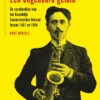
Een ongehoord geluid
De saxofoonklas van het Koninklijk Conservatorium Brussel tussen 1867 en 1904 Als verlicht despoot en fervent muziekliefhebber wilde koning Leopold I van het nieuwe koninkrijk België een culturele mogendheid maken. Vrijwel meteen na de Belgische Revolutie werd met zijn steun onder meer het Koninklijk Conservatorium van Brussel opgericht. François-Joseph Fétis, door Leopold benoemd tot eerste…
Lees meer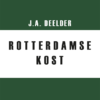
‘Lang leve de dichter!’ ‘Waarvan?’
‘Lang leve de dichter!’ ‘Waarvan?’ Deze ultrakorte dialoog stond op de achterflap van Rotterdamse kost (2017), een Poëzieweekgeschenk van Jules Deelder.2 Wie de neerlandistische literatuurgeschiedschrijving overschouwt, ziet hoe verrassend weinig die vraag, ‘Waarvan leeft de dichter?’, expliciet gesteld is. De kwesties van cultureel belang en canonisering die ook verscholen zitten in de uitroep ‘Lang leve de…
Lees meer
Naar een diachrone blik op de verdiensten van Nederlandstalige auteurs
This article argues that it is both important and viable to develop a diachronic perspective on the profits of literary authors in the Low Countries. Up to now, conceptual and theoretical boundaries between different subdisciplines within Dutch literary studies have resulted in a compartmentalized, fragmentary narrative of the economic, social and symbolic profits of literary…
Lees meer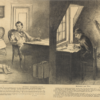
‘Echte schrijvers zijn niet te koop. Praktijk en beeldvorming van het economisch profijt van de literaire auteur door de eeuwen heen’.
A grand narrative of Dutch literary authors’ opportunities to economically profit from their writing is yet to be written. The general assumption, however, is that these opportunities developed teleologically from a dominant system of patronage during medieval and early modern times, in which financial gains were marginal and in which author’s independence of their supporters…
Lees meer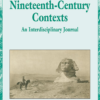
Negotiating authorship and (in)dependence around 1900: The case of Dutch literary magazine De beweging*
What does the concept of “autonomy” mean when it comes to authors and their practices? In the early twentieth century, Dutch writer Albert Verwey had strong views on the subject.
Lees meer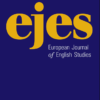
Reciprocal interactions and complex negotiations: three nineteenth-century models of patronage
This article suggests that patronage relationships can be interpreted in terms of gift exchange, arguing that this pertains in particular to late nineteenth-century forms of patronage.
Lees meer
De nieuwe gids and its Informal Patronage System
This paper focuses on the funding and finances of De nieuwe gids, a late nineteenth-century periodical believed by many to be the archetypical Dutch cultural magazine. The editors of De nieuwe gids introduced new ways of running their business and had new ideas about their role as professional writers and painters, about the pitfalls of creating for money,…
Lees meer
‘Nooit zag ik zulk een verlicht administrateur van andermans belang’ – René Rademacher Schorer (1888-1956)
In de jaren twintig en dertig nam de Utrechtse ambassadeur René Rademacher Schorer diverse initiatieven om het ingedutte kunstleven in zijn stad nieuw leven in te blazen. Dit artikel laat zien op welke manieren hij als bestuurder en mecenas steun gaf aan uiteenlopende culturele instellingen, en belicht hij hoe zijn positie in de Utrechtse kunstwereld…
Lees meer
Scriptie: Vrienden in voor- en tegenspoed: De revival van vriendenkringen van culturele instellingen
Ever since the Dutch government announced huge cutbacks in the cultural sector in 2011, cultural organizations have been looking into ways of becoming more self-sufficient. Private donations will have to be become an important factor in the process of becoming less dependent on the government. One group of people that has regained particular interest of…
Lees meer
